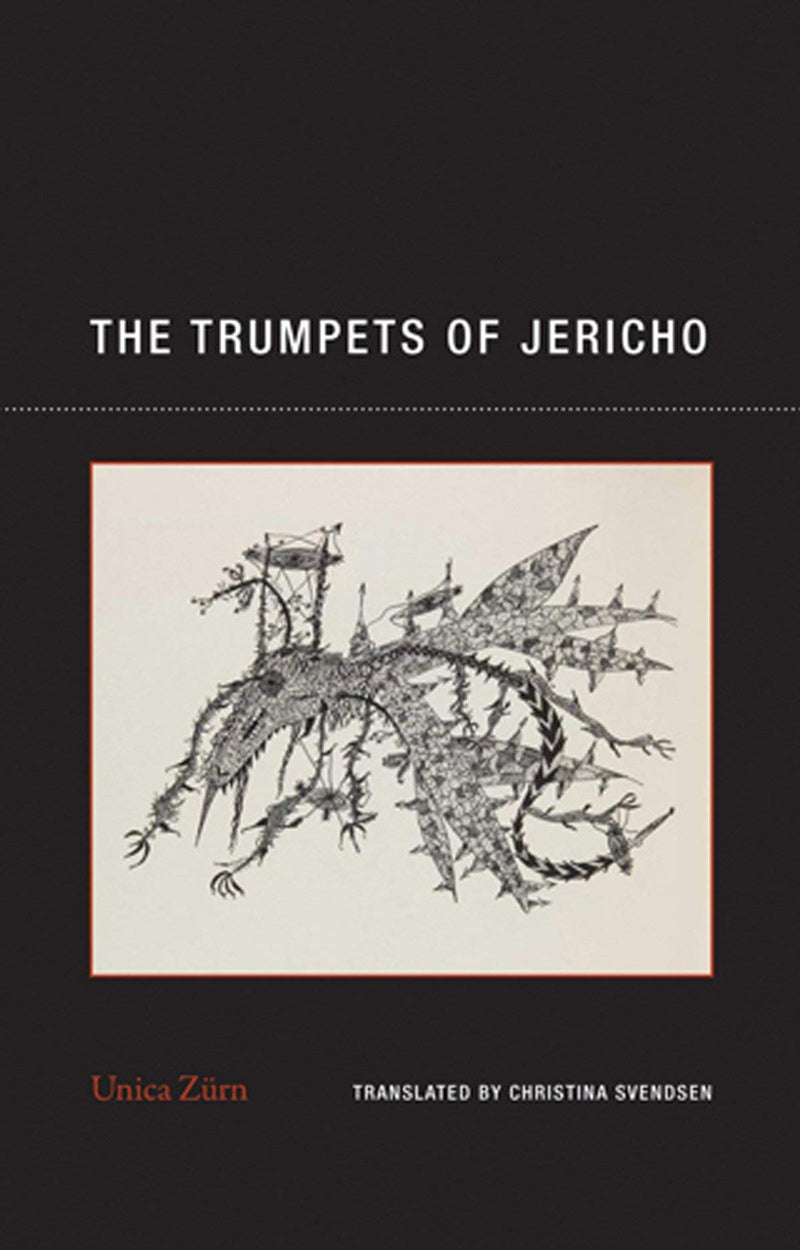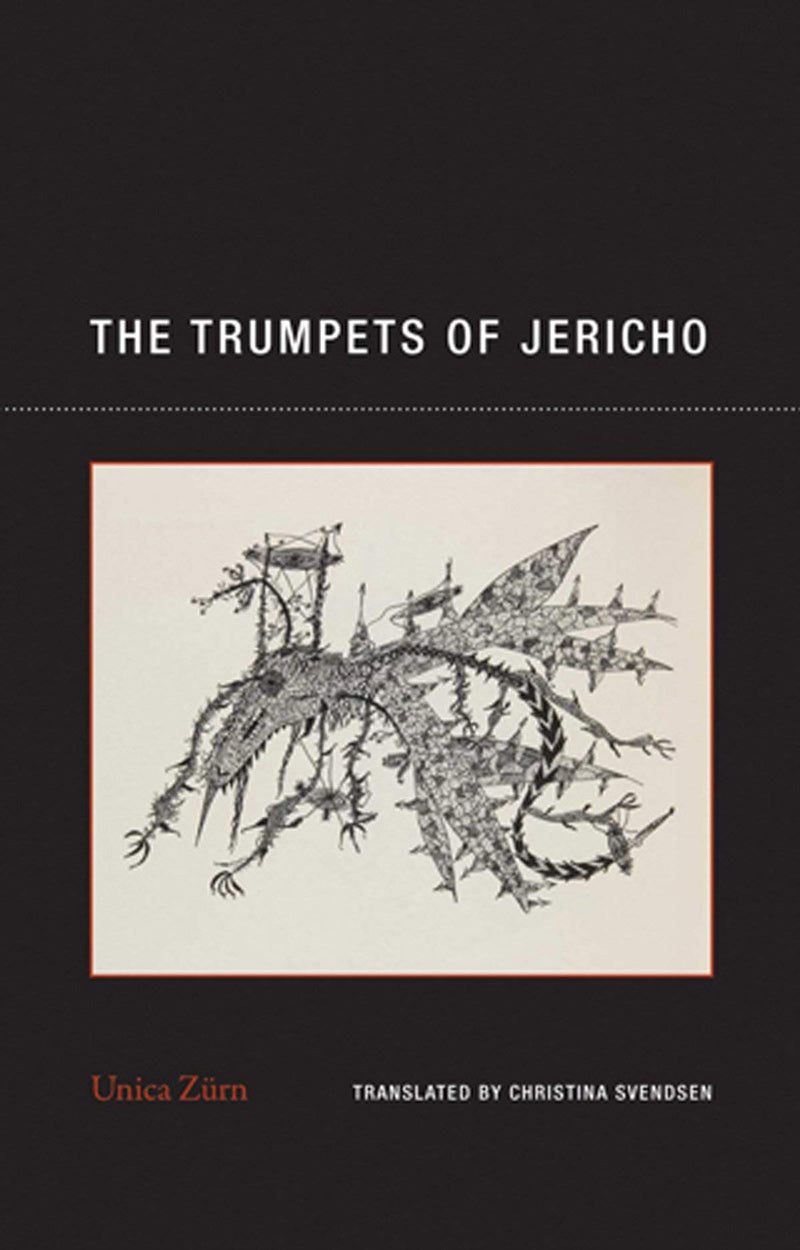The Trumpets of Jericho
The Trumpets of Jericho
Unica Zürn
Couldn't load pickup availability
Translated, with an introduction, by Christina Svendsen / June 2015 / 4.5 x 7, 80 pp. / 978-1-939663-09-2
This fierce fable of childbirth by German Surrealist Unica Zürn was written after she had already given birth to two children and undergone the self-induced abortion of another in Berlin in the 1950s. Beginning in the relatively straightforward, if disturbing, narrative of a young woman in a tower (with a bat in her hair and ravens for company) engaged in a psychic war with the parasitic son in her belly, The Trumpets of Jericho dissolves into a beautiful nightmare of hypnotic obsession and mythical language, stitched together with anagrams and private ruminations. Arguably Zürn's most extreme experiment in prose, and never before translated into English, this novella dramatizes the frontiers of the body—its defensive walls as well as its cavities and thresholds—animating a harrowing and painfully, twistedly honest depiction of motherhood as a breakdown in the distinction between self and other, transposed into the language of darkest fairy tales.
Unica Zürn (1916–70) was born in Grünewald, Germany. Toward the end of World War II, she discovered the realities of the Nazi concentration camps—a revelation which was to haunt and unsettle her for the rest of her life. After meeting Hans Bellmer in 1953, she followed him to Paris, where she became acquainted with the Surrealists and developed the body of drawings and writings for which she is best remembered: a series of anagram poems, hallucinatory accounts and literary enactments of the mental breakdowns from which she would suffer until her suicide in 1970.
Press
“The Trumpets of Jericho is a challenging text that places the reader where Zurn wants them to be—both inside and outside of the female psyche. In doing so, it creates a surreal landscape and a language that is startlingly new, demanding that the reader be willing to risk being an outsider—even if for a little while—if she wants to participate in Zurn’s imaginative world.”
—Subashini Navaratnam, 3:AM Magazine
“Through her body swollen to anguish, a manchild swims, fighting for his life like a fish ashore and gasping in this very odd text.”
—Mary Ann Caws, The Brooklyn Rail
“[R]eads more like an exorcism, immediately placing us into the personal Hades that is Zürn’s tale, a slim volume of mythic proportions.
—Zack Hatfield, Los Angeles Review of Books
“As wild and transgressive as Zürn gets, clearly speaking from a place unchained by necessary logic or certainly anything like hope, it is solely the masterful mechanics of her writing, the dervishes of images that could be found absolutely nowhere else, that keep us going.”
—Blake Buter, Vice
“Christina Svendson works some real magic in her English translation of the whole trick. Her Zürn is an eerie brew of pseudo-Bashō and revolution.”
—Martin Billheimer, CounterPunch
“These are turns of phrase that want to be read aloud, that ask to be held by the tongue and thrown against the teeth. As utterances, they might resound like the Bible’s trumpets of Jericho, felling impenetrable walls and bringing new meaning into the violent breach.”
—Annie Godfrey Larmon, ArtForum
“[H]er most sophisticated and novelistic anagrammatic work.”
—Nathalie Haddad, The Paris Review


